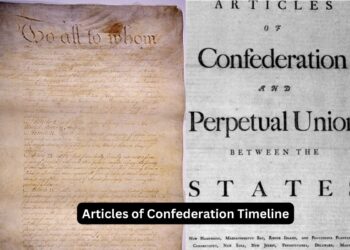The Algebra of Infinite Justice Essay Summary by Arundhati Roy
“The Algebra of Infinite Justice” is a thought-provoking essay written by Arundhati Roy, an Indian author, and activist. Published in 2001, shortly after the September 11 attacks in the United States, Roy’s essay challenges the prevalent narratives surrounding terrorism, nationalism, and the pursuit of justice.
Roy begins by discussing the nature of terrorism and its causes. She argues that while the attacks on the World Trade Center and the Pentagon were horrific and unjustifiable, they were not entirely unprovoked. She highlights the long history of U.S. interference and intervention in the Middle East, which has often supported repressive regimes, caused civilian casualties, and fostered resentment among the local population. The Algebra of Infinite Justice by Arundhati Roy According to Roy, these actions have contributed to a cycle of violence and terrorism.
Also Read-
- Listening to Grasshoppers Essay Summary by Arundhati Roy
- An Ordinary Person’s Guide to Empire Essay Summary by Arundhati Roy
- The God of Small Things Novel Summary by Arundhati Roy
The author criticizes the simplistic rhetoric of labeling individuals or groups as “terrorists.” She argues that such labels serve to dehumanize and delegitimize the grievances and struggles of those who resort to violence. Roy suggests that the term “terrorism” is often used selectively, conveniently excluding state-sponsored violence and focusing only on non-state actors.
Roy also examines the language used in the aftermath of the September 11 attacks, particularly by the U.S. government. She critiques the notion of a “war on terror,” asserting that it has been used as a pretext to justify military interventions and curtail civil liberties. The Algebra of Infinite Justice by Arundhati Roy She argues that the idea of a perpetual war against an elusive enemy allows governments to consolidate power and suppress dissent.
Furthermore, Roy questions the concept of “just war” and the pursuit of justice through military means. She argues that violence begets violence, and that the cycle of vengeance and retribution only perpetuates suffering. The Algebra of Infinite Justice by Arundhati Roy Instead, she calls for a deeper understanding of the root causes of conflicts and the need to address them through non-violent means.
The author also explores the impact of globalization and capitalism on the world order. The Algebra of Infinite Justice by Arundhati Roy She criticizes the widening economic inequality, exploitation of resources, and marginalization of vulnerable populations caused by neoliberal policies. Roy asserts that these socio-economic injustices create fertile ground for violence and radicalization.
Throughout the essay, Roy advocates for a more nuanced and empathetic approach to understanding the complexities of terrorism and conflict. The Algebra of Infinite Justice by Arundhati Roy She emphasizes the importance of listening to the voices of the marginalized and oppressed, seeking alternative solutions, and challenging the dominant narratives perpetuated by governments and the media.
Themes and Symbols
Themes:
- Terrorism and Violence: The essay explores the complex nature of terrorism and violence, questioning the simplistic labels and narratives often associated with these issues. The Algebra of Infinite Justice by Arundhati Roy It emphasizes the need to understand the root causes of violence and challenges the idea that military solutions alone can bring about justice.
- Justice and Injustice: Arundhati Roy critically examines the concept of justice. The Algebra of Infinite Justice by Arundhati Roy She highlights the injustices perpetuated by state-sponsored violence, economic inequality, and globalization, calling for a more inclusive and compassionate approach to achieving justice.
- Power and Resistance: The essay explores power dynamics and the ways in which power is wielded by governments and dominant institutions. Roy advocates for listening to marginalized voices and challenging the dominant narratives that perpetuate violence and inequality. The Algebra of Infinite Justice by Arundhati Roy She calls for resistance against oppressive systems and a reevaluation of power structures.
Symbols:
- “Algebra of Infinite Justice”: The title of the essay itself serves as a symbol, representing the complexities and interconnectedness of justice and the challenges of achieving it in a world marred by violence and inequality. The Algebra of Infinite Justice by Arundhati Roy The Algebra of Infinite Justice by Arundhati Roy It suggests that justice cannot be reduced to a simple equation or a one-size-fits-all approach.
- War on Terror: The rhetoric of the “war on terror” is a symbol of the militaristic and retributive approach adopted by governments in response to acts of terrorism. The Algebra of Infinite Justice by Arundhati Roy It represents the perpetuation of violence and the erosion of civil liberties under the pretext of security.
- Marginalized Voices: Throughout the essay, the voices of marginalized individuals and communities serve as symbols of resistance and alternative perspectives. Roy emphasizes the importance of listening to these voices and amplifying their narratives as a means of challenging dominant power structures and fostering understanding.
- Globalization: Globalization symbolizes the interconnectedness of the world and the uneven distribution of power and resources. The Algebra of Infinite Justice by Arundhati Roy It represents the economic forces that contribute to socio-economic inequality, exploitation, and the marginalization of vulnerable populations.
Conclusion
“The Algebra of Infinite Justice” by Arundhati Roy is a thought-provoking essay that challenges prevailing narratives on terrorism, nationalism, and justice. Roy argues for a more nuanced understanding of the causes of terrorism, critiquing the selective labeling of individuals as “terrorists” and highlighting the role of state-sponsored violence.
She questions the language of a “war on terror” and the pursuit of justice through military means, advocating for non-violent solutions and a deeper examination of the root causes of conflicts. Roy also critiques the impact of globalization and capitalism on socio-economic inequality, which she sees as contributing to violence and radicalization. The Algebra of Infinite Justice by Arundhati Roy The essay calls for empathy, listening to marginalized voices, and challenging dominant narratives to foster a more just and inclusive world.
FAQ.
Q. Who is the author of “The Algebra of Infinite Justice”?
Ans. The essay “The Algebra of Infinite Justice” is written by Arundhati Roy, an Indian author, and activist.
Q. What is the main argument of the essay?
Ans. The main argument of the essay is that terrorism cannot be understood in isolation from its causes, such as historical grievances, state-sponsored violence, and socio-economic inequality. Roy calls for a more nuanced and empathetic approach to addressing terrorism, challenging the rhetoric of a “war on terror” and advocating for non-violent solutions.
Q. What does Roy criticize in the essay?
Ans. Roy criticizes the simplistic labeling of individuals as “terrorists” and argues that this overlooks the complexities of conflicts. She also critiques the language and actions of governments in the aftermath of the September 11 attacks, questioning the concept of a perpetual war on terror and the pursuit of justice through military means. Additionally, she criticizes the impact of globalization and capitalism on socio-economic inequality.
Q. What does Roy propose as an alternative to military solutions?
Ans. Roy proposes a deeper understanding of the root causes of conflicts and the need for non-violent solutions. She emphasizes the importance of listening to marginalized voices, addressing socio-economic inequality, and challenging dominant narratives to achieve lasting justice.
Q. When was the essay published?
Ans. “The Algebra of Infinite Justice” was published in 2001, shortly after the September 11 attacks in the United States.
















